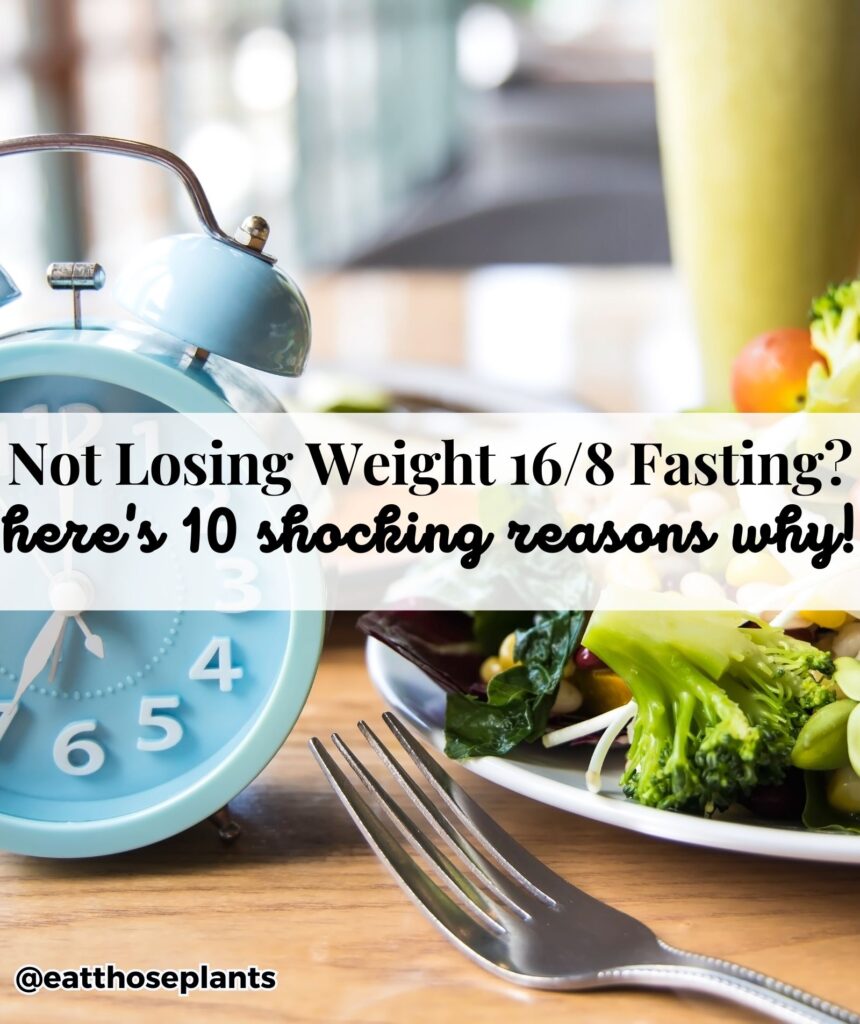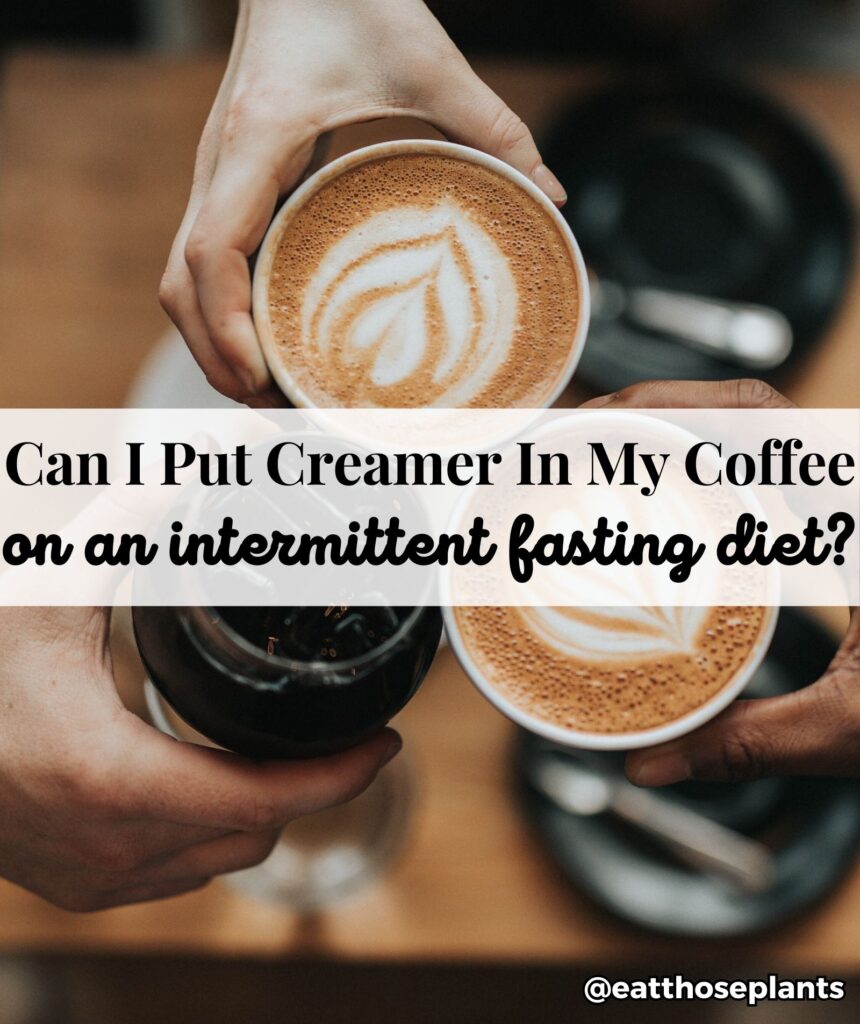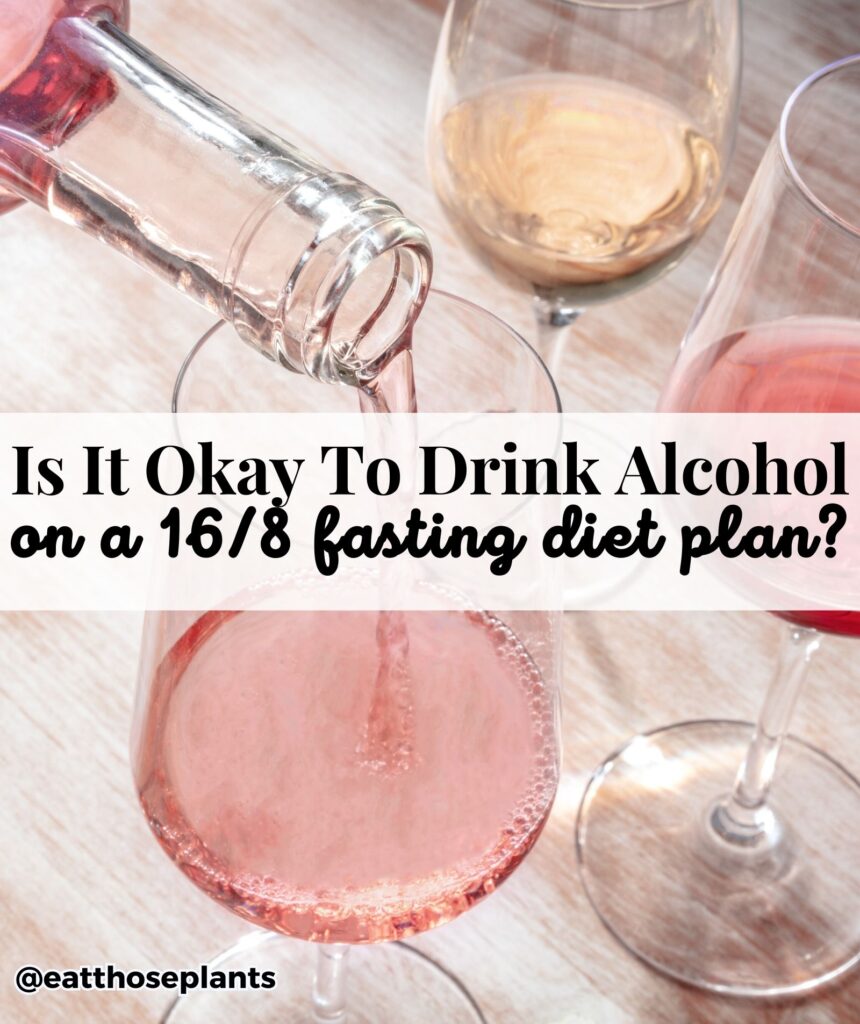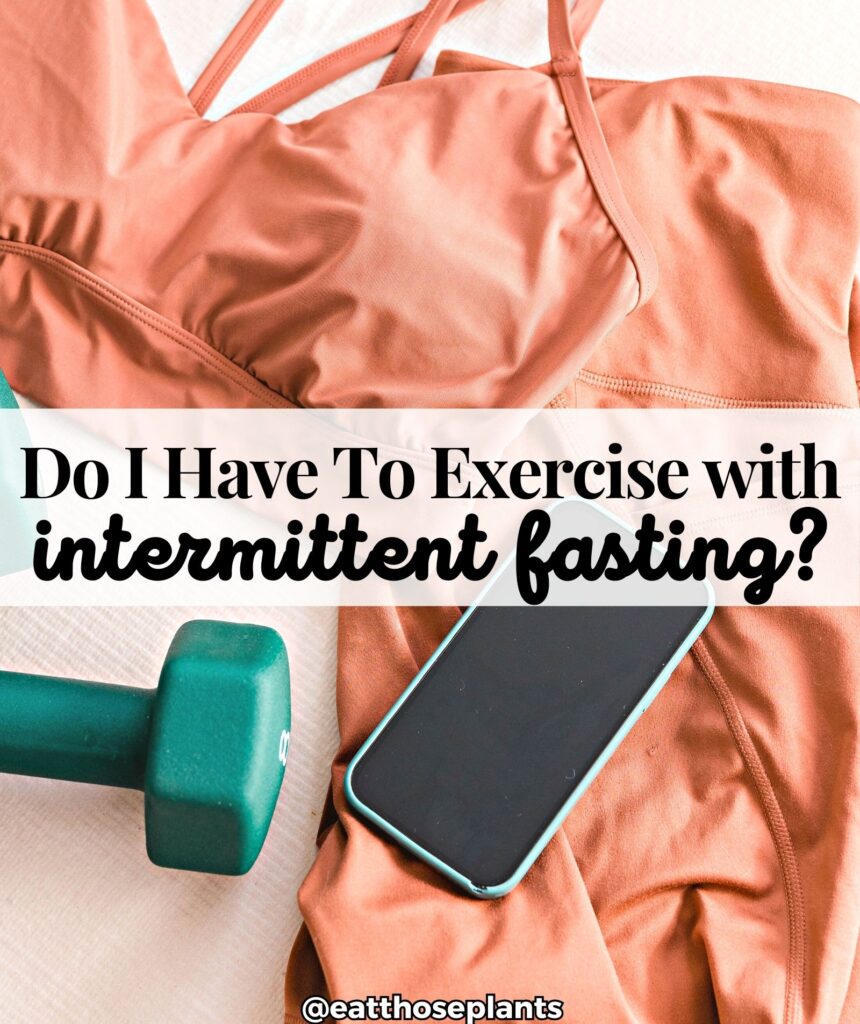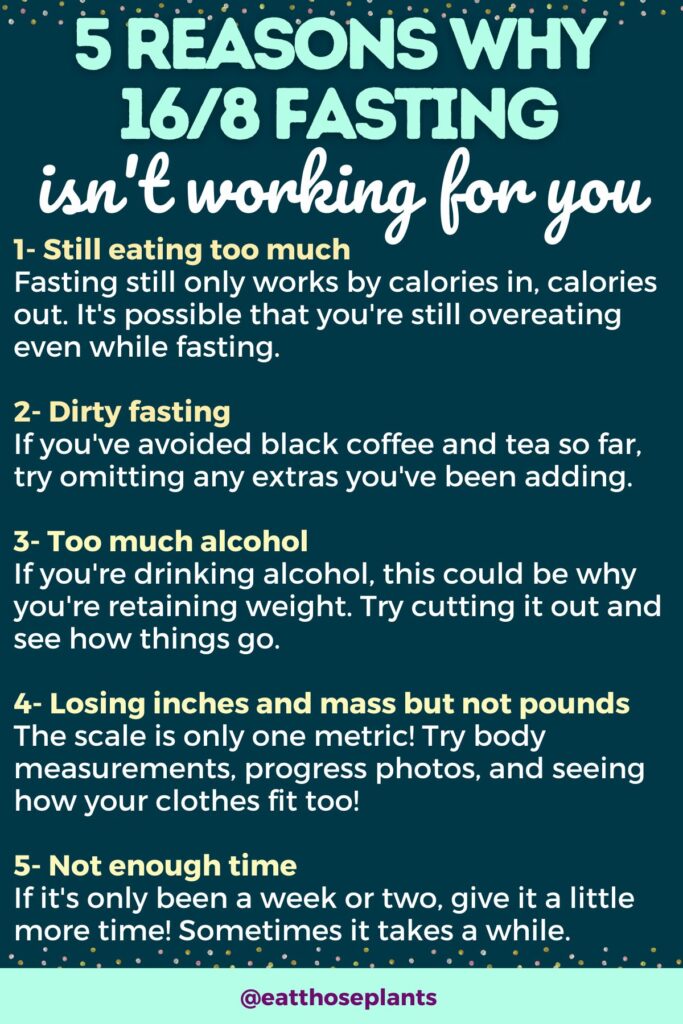Drinking only black coffee in the morning? Check. Eating all your day’s food between 12pm and 8pm? Check. Totally confused as to why the weight isn’t melting off? Check.
Wait… huh?
If you’ve been intermittent fasting for what feels like forever, yet you’re not getting those crazy insane fast weight loss results everyone else seems to be, you might be wondering what the eff is going on.
Why am I not losing weight on intermittent fasting? What’s wrong with me?
Fear not, because in this article I’m going to share 10 reasons why you’re not losing weight on intermittent fasting. And give a few tips for what you can do about it.
You’re Still Eating Too Many Calories
While the beauty of intermittent fasting is that it restricts when you eat rather than what you eat – you still have to do things in moderation.
Yes, it’s totally possible to continue to enjoy the foods you love and lose weight.
In fact, it’s a good thing to start fasting while eating most of what you want and still lose weight because it gives you an instant boost of faith in the process.
But, eventually, just eating one to two meals a day instead of three or four doesn’t work unless you make at least some modifications to your diet.
Sure, doing this here and there is fine. Life is for living!
BUT… you can’t eat crazy every day and expect to lose weight just because you’re overeating in two meals instead of three.
If you’re not losing weight on intermittent fasting take an honest look at your diet. You don’t have to go ON a diet, but you much WATCH your diet.
It’s the sure-fire path toward improvement.
You’re Inconsistent With Your Fasting Schedule
One of the nicest benefits of intermittent fasting is flexibility.
If you work night shift, for example, you don’t have to do the typical feeding window of 12pm to 8pm.
Or if you prefer a different intermittent fasting schedule altogether – you may opt to fast two full days each week and eat a modified diet the other 5.
Though intermittent fasting is flexible, it’s still important to be as consistent as you can once you select an intermittent fasting schedule.
If you’re fasting 8 pm to noon one day, then 10 pm to 2 pm the next, your average fasting period shortens and you’re not going to reap all the benefits.
Some people like to fast more strictly during the workweek – say 16 hours M-F and cut it down to 12 or 13 hours on the weekend.
This is fine and you should still see great results. Try to stay more consistent if you’ve been a little lax and see if that helps.
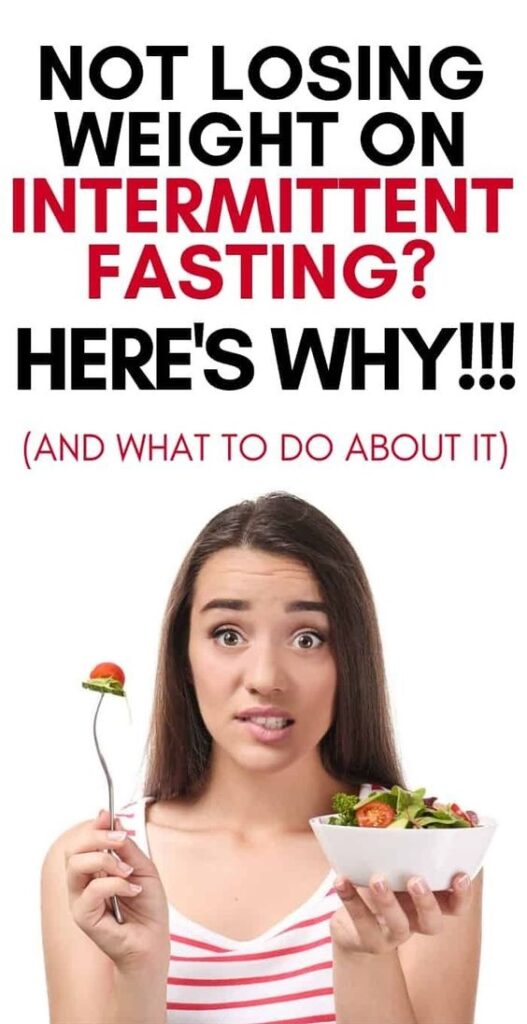
You’re Not Fasting Long Enough
While it’s possible to lose weight by fasting for shorter periods of time, generally the longer you fast on a daily basis, the better your results will be.
For many beginners getting to 16 hours or longer can be a challenge, but you don’t want to dip too low or you won’t see the change you seek.
From personal experience, the sweet spot is around 14 hours of fasting. Any lower than that I find isn’t really long enough.
If you’re not hitting 16 hours as frequently as you’d like, check to see how long you are going and see if you can push it just a little bit longer.
Also, if you’re having trouble stretching your fasting window, try the salt trick: simply dab a little salt on your tongue and drink a bunch of water. I don’t know why this works, but it really does. It will help you reach your target until you get more used to it.
Dirty Fasting Isn’t For You
So many people e-mail me asking what’s okay to eat or drink during their fasting window, that I imagine there are quite a few folks out there who aren’t losing weight on intermittent fasting because they’re not actually fasting.
Fasting, for the sake of intermittent fasting, means the total absence of calories.
Some people feel you should be very strict and consume nothing but water during your fasting window, while others say coffee and tea either unsweetened or with artificial zero-calorie sweetener is fine.
Still others feel as long as you keep it below 50 calories or so (perhaps one teaspoon of creamer or low-fat milk) would be alright.
In my opinion and experience, any of these options are fine. I’ve had great results losing weight with intermittent fasting both with artificial sweeteners and with a dash of milk or creamer. But anything beyond that will absolutely break your fast.
If you’ve been consuming anything other than water, unsweetened coffee or tea, any solid food at all, or any beverage that has more than 50 calories or so… you haven’t been fasting and you won’t lose the weight.
And sometimes (since we’re all different) – any calories or creamer in your coffee will prevent your body from doing what it needs to do.
So if you’ve been using creamer, artificial sweetener or anything other than water, black coffee or tea and you’re not losing weight – ditch those extras for a week or so and see if you can get the scale moving in the right direction.
A Tip To Drink More Water
Some people really get bored with drinking plain water and I totally get that. If you need to drink gallons of water each week, it’s understandable that you may tire of it being plain.
One thing I do is add a few Mio Drops to my water, and it really does help!
If you aren’t familiar with them, Mio Dropsare calorie, carb and sugar-free water enhancers. You just squeeze a couple drops into your water and you’re good to go!
You can find them at grocery stores, but I just buy mine on Amazon because it’s like a dollar cheaper per bottle.
I grab many at a time because I like to have different flavors. The Fruit Punch is the best one, imo!
You’re Drinking Too Much Alcohol
While yes, it’s okay to drink alcohol while intermittent fasting (provided it’s within your eating window – it would count as “food”), you need to stay mindful of the fact that alcohol contains calories.
If you’re drinking too much alcohol and then still eating full meals, chances are you’re going way over your calorie budget.
Just like with eating fast food or indulging in desserts – every once in a while is fine, but if you do this on a regular basis you aren’t likely to lose much weight.
Another problem with alcohol is that most people drink it outside of their fasting window.
If you’re fasting from 8pm to 12pm but you normally drink late at night, not only are you consuming those extra calories – but you’re disrupting your fasting time, and you’re also more likely to make poor food choices the following day (or days!)
For those reasons, it’s best to avoid alcohol as much as possible (especially when you’re first beginning to shed those extra pounds.)
But you have to do what works for you!
Just understand that even if you’re doing everything perfectly if you’re drinking alcohol even somewhat regularly, you’ll likely struggle losing weight on intermittent fasting.
You’re Not Tracking All Your Metrics
One of the most important things you need to be doing when losing weight is tracking more than just one metric. It’s so easy to feel like you’re not losing weight because maybe the numbers on the scale aren’t moving as quickly as you’d like, but the weight loss could show up elsewhere.
If you feel like you’re not losing weight on intermittent fasting, yet you’re doing everything right, consider tracking these 4 metrics:
Body weight, fat and BMI:
The scale is definitely a love-hate thing, but it’s important. My advice is to get a biometric scale that tracks more than just body weight. The one I use and recommend is the Renpho Bluetooth BMI Scale.
This scale is so awesome because it’s 1/3rd of the price of the Fitbit Aria scale and has everything you need to track your progress.
It sinks seamlessly to your smartphone and comes with a free app for tracking your data.
The most important metrics are weight, body mass index (BMI), body fat percentage, and hydration levels. So, with a scale like this sometimes you can see quite easily that if the pounds aren’t melting off as quickly as you’d like, you can see your body fat percentage is going down, and that lets you know you’re on the right track.
Give it a little more time, and the rest of your body will catch up.
Measurements with measuring tape:
Sometimes your body will shrink slightly without seeing any movement on the scale. And that’s okay too!
That’s why it’s important to measure your body using a measuring tape and track your progress on a weekly basis.
I use this simple, cheap Care Touch Skinfold measuring tape and it’s perfect for this purpose. It’s better than a standard measuring tape because it has a little knob that holds the mechanism in place, so you don’t have to struggle with placement and holding for harder to reach areas.
I had a week where I lost 0 pounds but 3 inches! Good to know, right?
Update: Here’s exactly how to track your measurements using a measuring tape.
Progress pictures:
If you’re anything like me you probably hate taking photos, but progress photos for intermittent fasting weight loss are so important. Sometimes a side-by-side photo tells a completely different story that other methods just don’t tell. Plus, it’s so cool to have photographic evidence of your journey!
Check how your clothes fit:
Finally, see how your clothes fit! Pull out that pair of pants wayyyyy in the back of your closet and try them on! You might be pleasantly surprised by how they fit now compared to how they used to. It could take some time before everything fits perfectly, but you will know if you see improvement.
Using all four of these methods might reveal that you actually are making progress. You just need different ways of seeing it unfold.
You Might Need Some (Or More) Exercise
While it’s true that you can lose weight intermittent fasting without exercise, if you’re not losing weight intermittent fasting, that may not be true for YOU.
Everybody is different. Just because some people may lose weight without exercising doesn’t mean that you’ll fare just as well. So, if you’re not exercising at all, start. And if you’re already exercising, maybe consider raising the intensity, duration or switching it up!
If you’re short on time, can’t make it to the gym, or don’t want to exercise outside, try walking in place to lose weight. I’ve lost TONS of weight this way and it really does work!
You Have Unrealistic Expectations About Fasting
If you feel as though you’re not losing weight on intermittent fasting, you might need to check your expectations.
For starters, the more fat and weight you start with, the easier it is to lose.
Someone who starts at 250 pounds might lose 5 to 10 pounds in their first-week intermittent fasting. But someone who starts at 150 pounds probably won’t (and shouldn’t).
The CDC officially says that 1 to 2 pounds per week is a safe weight loss rate. So, if you’re losing around 5 to 8 pounds per month (not per week), you ARE losing weight. Great job!
You May Need To Give Fasting More Time
These days we all want instant results. We want to fast for a few days, eat whatever we want, and instantly have our dream bodies.
Unfortunately, it doesn’t work that way.
If you feel like you’re doing everything right and still not losing weight intermittent fasting, give it a little more time!
Some people will see super-fast results and will drop 5 pounds in a week of intermittent fasting. This is even more likely if your diet and exercise were terrible beforehand and you switched what you ate plus exercised on top of intermittent fasting.
But, again, if you had a halfway decent diet and incorporated even a little exercise beforehand, adding fasting isn’t that big of a leap and you aren’t likely to see a super-fast dramatic result in just a week’s time.
If you’ve gone down this list of reasons you may not be losing weight with intermittent fasting and you’re still in your first few weeks to a month, my advice would be to give it a little more time.
You Have An Underlying Medical Condition
Finally, if you’re not losing weight on intermittent fasting, you may have an underlying medical condition.
Before you begin any new dietary or exercise program you should always check with your physician, but if you’ve been fasting for a while and following all the guidelines, working out, watching your calorie intake, and staying on top of things yet you’re still not progressing, it’s definitely time to make an appointment.
Final thoughts
If you’ve been trying fasting for a while and it’s not working for you, I’m so sorry you’re struggling.
I’ve been there too and know it’s really hard.
But do check these 10 potential problems, make some tweaks, and see if you can get the ball rolling in the right direction.
You can achieve your goals – I know it!
Never give up, be willing to make some changes, and invest in yourself.
You’re worth it 🙂
Oh and by the way…
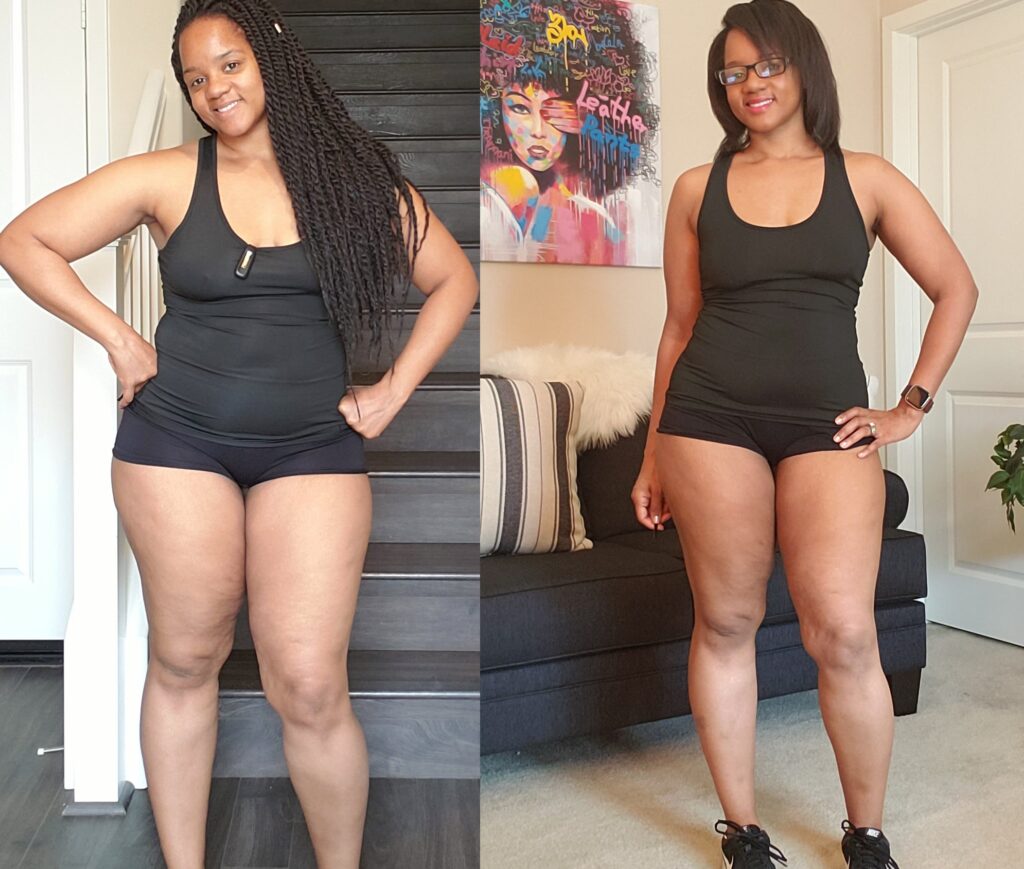
If you’d like to get started with intermittent fasting or you want to take your intermittent fasting weight loss to the next level, what you really need is my Intermittent Fasting Weight Loss Planner!
It literally has everything you need to track fasting, strength & cardio training, pounds/inches lost, space for notes, slots for before & after pics, and three 30-day fitness challenge charts!
***CLICK HERE TO GRAB IT ON AMAZON***
Happy fasting! 🙂

